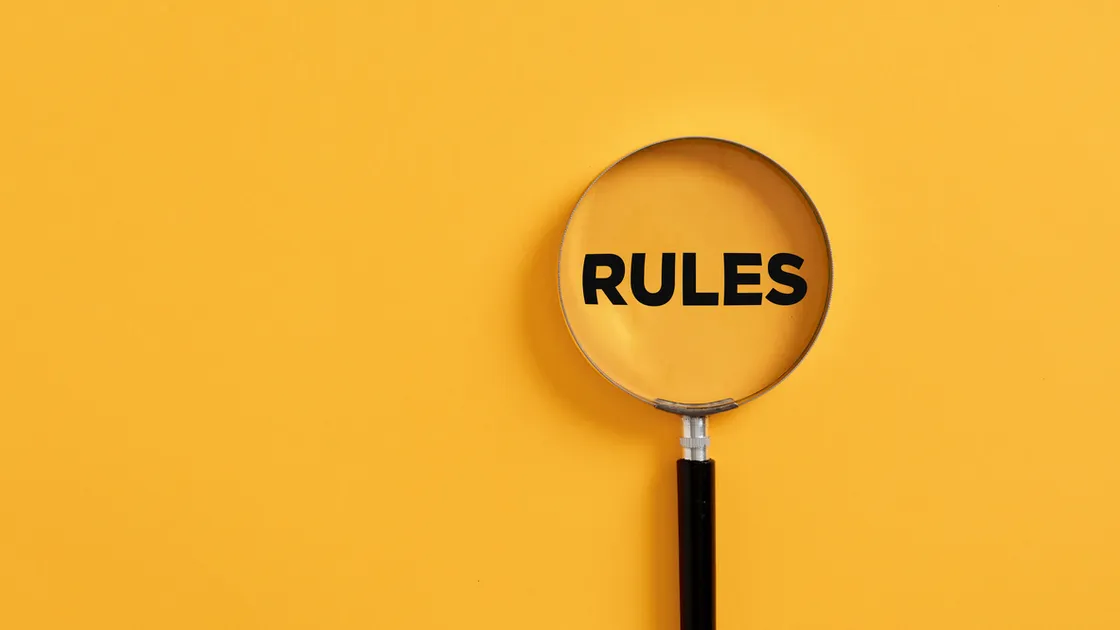Introduction to Japanese Influencer Marketing! Introducing Schools with Training Courses

INDEX
- 1. Basics of Influencer Marketing
- 2. Benefits of Implementing Influencer Marketing
- 2-1. Gaining High Empathy and Trust
- 2-2. Ability to Implement Diverse Marketing Strategies
- 2-3. Effective Targeting of Customer Demographics
- 2-4. Trustworthy, User-Centric Reviews
- 2-5. Higher Acceptance than Traditional Advertising
- 2-6. High Spreadability through Word-of-Mouth Chains
- 2-7. Seamless Online Purchases
- 2-8. Increased Traffic from Search Engines
- 3. Disadvantages of Influencer Marketing
- 3-1. Risk of Being Perceived as Stealth Marketing
- 3-2. High Potential for Backlash
- 3-3. Time-Intensive Selection Process
- 3-4. Possibility of Unmet Expectations
- 3-5. Limited Control over Post Content
- 3-6. Leveraging the Unique Appeal of Influencers
- 3-7. Creating Campaigns That Leverage Mutual Strengths
- 4. Five Recommended Schools Offering Courses to Learn Influencer Marketing Skills
In today’s world, where the internet and social media have become ubiquitous, the way information is communicated has undergone significant change, bringing influencer marketing into the spotlight. This method, leveraging creators with significant influence on social media, enables highly empathetic promotions that traditional advertising struggles to achieve.
This article provides a systematic explanation, starting with the basics of influencer marketing, detailing its specific advantages and disadvantages, outlining key points for success, and even introducing schools where you can acquire the necessary skills.
Basics of Influencer Marketing
Influencer marketing is a method of promoting products or brands by utilizing individuals who have a strong influence on social media. By sharing their thoughts and experiences with products, these influential individuals can effectively boost consumer purchasing intent and brand recognition. Compared to traditional advertising methods, it offers a high return on investment and enables precise targeting of appropriate customer demographics, making it a marketing strategy that attracts the attention of many companies.
Benefits of Implementing Influencer Marketing
As hobbies and interests become more segmented and information-gathering methods diversify, traditional media like television and magazines alone have become less effective for advertising campaigns. Influencer marketing, which allows precise targeting of the desired audience, has gained attention as an innovative solution to this challenge. Below, we outline the benefits of influencer marketing.
Gaining High Empathy and Trust
When influential creators share their experiences with products, they can evoke emotions like “I want to have the same experience as my favorite influencer.” This results in deep empathy and trust from followers. This approach is particularly beneficial for new products or brands, as building trust quickly is often a significant challenge. Leveraging influencers with strong relationships with their followers allows companies to efficiently establish credibility.
Ability to Implement Diverse Marketing Strategies
Influencer marketing enables the combination of various methods to effectively convey a product’s appeal. The main promotional strategies include the following:
| Gifting | Providing products for free and having influencers share their impressions on social media. |
| Site Visits | Having influencers visit stores or events to experience and report on their charm. |
| Co-Developed Products | Collaborating with influencers to plan and create products. |
| Live Commerce | Conducting real-time product introductions or sales through live streaming. |
| Ambassadorship | Establishing partnerships with influencers to continuously promote brand value and appeal. |
By leveraging the characteristics of each method, companies can develop promotional strategies tailored to their objectives and product features.
Effective Targeting of Customer Demographics
Influencers specializing in fields such as fashion, gourmet, beauty, or travel often attract followers with strong interests in those areas. With clear attributes like age group, gender, residence, and hobbies, it becomes possible to efficiently target specific customer demographics. For instance, by engaging a fashion influencer to promote apparel products, companies can effectively communicate the appeal of their offerings to fashion-conscious consumers.
Trustworthy, User-Centric Reviews
Influencers convey the appeal of products from a consumer perspective, based on their actual experiences. Unlike official corporate promotions, their reviews are perceived as genuine and relatable feedback, gaining a high level of trust. Honest opinions not only evoke consumer empathy but also serve as valuable insights for product improvement and development.
Higher Acceptance than Traditional Advertising
Through influencers’ testimonials, information about products and services can be delivered naturally. Demonstrations of product use in videos and explanations in relatable language make these promotions less “advertising-like” compared to traditional corporate ads, making them more acceptable to viewers. Additionally, social media-based promotions are less affected by ad blockers, ensuring that influencer posts reach their intended audience even when traditional ads are restricted.
High Spreadability through Word-of-Mouth Chains
When influencers share their product experiences on social media, their audience often purchases the product and shares their own experiences, creating a ripple effect. This word-of-mouth chain spreads further via social media sharing functions. The influence starts with the influencer and grows as actual users’ testimonials inspire new customers, enabling effective information dissemination.
Seamless Online Purchases
Influencer posts can create a seamless flow from viewing a product to purchasing it. Direct links to sales sites embedded in social media posts allow viewers to make purchases before losing interest. A distinct advantage of online sales is the ability to analyze detailed metrics such as view counts and purchase volumes. This data provides actionable insights for crafting more effective marketing strategies.
Increased Traffic from Search Engines
Direct links from influencer PR posts to sales websites allow companies to smoothly guide interested users to their platforms. As more users search for products after viewing posts, visits to the company’s website via search engines also increase. Additionally, placing company URLs in posts by influential creators can serve as a search engine optimization (SEO) tactic. When influencer posts appear in Google search results, it opens doors to new customer demographics.
Disadvantages of Influencer Marketing
While influencer marketing has many advantages, it also comes with certain drawbacks that must be considered. Below are the key disadvantages:
Risk of Being Perceived as Stealth Marketing
If influencer posts are not clearly marked as advertisements, they may be perceived as stealth marketing, leading to consumer distrust. With revisions to Japan’s Act against Unjustifiable Premiums and Misleading Representations coming into effect in October 2023, hiding the advertising nature of posts is now illegal. Posts must explicitly include labels like “PR” or “advertisement.” However, since influencer posts often resemble casual testimonials, even properly marked posts can be misunderstood as covert advertising, requiring caution.
High Potential for Backlash
Influencer posts can unintentionally provoke controversy, significantly impacting a company’s image. Even with prior content reviews, certain expressions or lack of sensitivity to specific groups can attract criticism. Moreover, controversies may arise from posts unrelated to promotions, necessitating careful vetting to ensure the influencer’s values and content align with the brand’s image.
Time-Intensive Selection Process
Selecting the right influencer involves significant time and effort. Identifying creators whose image aligns with the brand requires thorough research. Additionally, companies often need to make offers to more than ten influencers to engage just one, requiring well-planned timelines.
Possibility of Unmet Expectations
Influencer collaborations do not always guarantee results. In some cases, the influencer may fail to effectively communicate the product’s appeal, or candid reviews may backfire, resulting in outcomes that fall short of expectations. Companies must consider the potential variability in promotional success based on post quality and the influencer’s compatibility with the brand.
Limited Control over Post Content
To preserve the unique style and authenticity of influencers, companies may find it challenging to dictate post content in detail. While companies can suggest key points to highlight, imposing strict control over posts is discouraged. Followers appreciate the influencer’s signature style and tone, and excessive management can have the opposite effect. Balancing respect for the influencer’s creative autonomy with effective messaging is crucial.
| Influencer Impact Analysis | Identifying characteristics of posts with high engagement. Investigating trends in engagement rates. Analyzing the content of followers’ comments. |
| Detailed Analysis of Follower Demographics | Identifying key attributes of followers. Confirming followers’ areas of interest. Examining followers’ posting trends. |
By comprehensively analyzing this data, you can identify the most suitable influencers for your promotion.
Leveraging the Unique Appeal of Influencers
Understanding and utilizing the unique charm of influencers and the reasons they are supported by their followers is key to success. Imposing excessive constraints on influencers can diminish their individuality, preventing them from showcasing their strengths and making it harder to gain empathy from their followers. The main goal of influencer marketing is to spark interest in your product among followers. To achieve this, it is crucial to respect the influencer’s natural style of expression and devise campaigns that resonate positively with their audience, leading to effective promotions.
Creating Campaigns That Leverage Mutual Strengths
A successful campaign combines the unique appeal of the influencer with the strengths of the company’s products. Beyond merely utilizing the influencer’s individuality, it is essential to appropriately communicate the brand’s intended message. To ensure effective campaigns, it is vital to share the brand’s values and features with the influencer. Building a collaborative relationship from the planning stage through detailed discussions, either in person or online, enables natural and effective communication. Prioritizing thoughtful communication over efficiency is a crucial element for successful promotions.
Five Recommended Schools Offering Courses to Learn Influencer Marketing Skills
For those aspiring to become professionals in influencer marketing, enrolling in a school can be an effective way to acquire the necessary skills. Here are five schools offering courses on influencer marketing:
DigiPro
DigiPro is a well-regarded school offering practical skills in social media marketing. Students can learn everything from the basics to advanced steps of ad placement for major platforms like Facebook, Instagram, and X (formerly Twitter). Both in-person and online learning options are available, catering to different lifestyles. The tuition fee is ¥330,000 for in-person classes and ¥385,000 for online courses (tax included).
WEBMARKS
WEBMARKS is an online school where students can focus on SEO and web advertising essential for social media marketing over a four-month intensive program. The school offers 24/7 access to video lectures, allowing for flexible learning schedules. Regular online classes with current marketing professionals and practical feedback sessions are also available. With over 300 video lectures and extensive resources, students gain comprehensive knowledge and skills needed for social media marketing.
WEBCOACH
WEBCOACH is a one-on-one web marketing school tailored for individuals aiming to change careers. With 47 specialized courses, students can select the skills they need, including social media marketing and practical business skills such as securing projects and negotiating deals. The program’s support system extends to securing income post-graduation, offering job placements for career changers and real projects for freelancers. Graduates can access the curriculum indefinitely, enabling continuous skill development.
SHElikes
SHElikes is a women-oriented career school that offers over 40 practical skills through subscription-based learning. Students can acquire comprehensive knowledge in digital marketing, including social media marketing, ad management, and PR. In addition to marketing, students can learn IT skills like video editing, web design, and programming. This environment enables learners to acquire a wide range of high-demand skills, transforming them into valuable assets in the job market.
TecAcademy
TecAcademy offers flexible courses ranging from 4 to 16 weeks, allowing students to choose based on their goals and budgets. The school provides individual guidance twice a week from active web marketers, along with guaranteed 24-hour responses via chat support. Free course introduction videos and consultations are available to help students thoroughly understand the curriculum before enrolling.
hotice Provides Matching Support
At hotice, we can help you select the right models for your marketing without you having to contact the influencers individually.
Selection of Japanese models, specifically the influencers for marketing purposes, can be very challenging.
hotice can help you facilitate the selection of influencers while also helping you communicate efficiently with these influencers.
Some models and influencers can be troublesome even after joining an agency, causing issues.
However, with hotice, you will have no problem of such.
If you are looking to optimize Japanese model marketing, hotice is the company for you.







